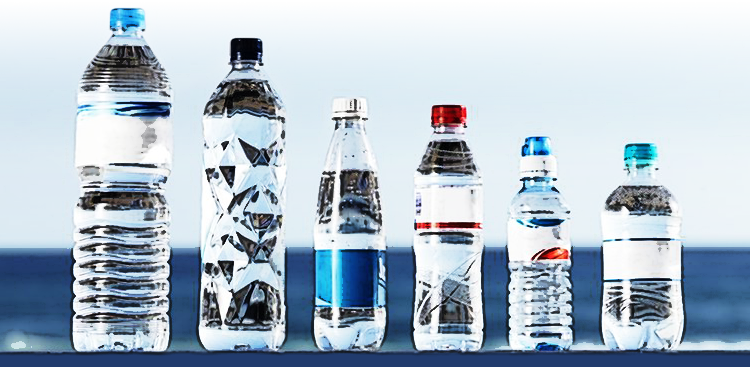How Drinking Water Affects Your Oral Health
Do different kinds of water have an effect on our smiles?
Most of us have heard that we need 8 glasses of water a day, but according to the Mayo Clinic, women should be getting 11 ½ cups while men need roughly 15 ½ cups. That’s a lot of water!
These days the shelves at grocery stores are filled with different brands and flavors to help make drinking water a more enjoyable activity. While staying hydrated is important for our entire bodies, drinking the right kinds of water can be just as important for our teeth, and avoiding bad breath.
What Water Does for Your Pearly Whites
Like your saliva, water does wonders to help keep the inside of your mouth clean and healthy. By rinsing away loose food particles and cavity causing bacteria, plaque isn’t able to build up as easily and cause decay.
Another benefit of water is that it dilutes any acid your mouth comes in contact with to help protect the enamel on your teeth! Even just a small sip or swish of water can rinse away residue that could cause stains or bad breath.
Drinking water is also one of the most effective ways to prevent dry mouth, also known as xerostomia. If you suffer from frequent dry mouth, drinking water helps hydrate your mouth and will also stimulate saliva production!
If water is so important, any ol’ water should suffice, right? Wrong!
The source of your drinking water is just as important as how much you drink in a day. Arguably, the best water to drink for your oral health is tap water. Packed with healthy minerals like calcium, magnesium, and phosphorous, the biggest benefit found in tap water is fluoride which strengthens tooth enamel and reduces the chances of decay.
The Truth About Bottled Water
It may be hard to believe, but not all waters are created equal. In fact, bottled water might surprise you when it comes to nutrition.
Because bottled water is so heavily filtered to achieve a perfect ‘flavorless flavor,’ healthy minerals like fluoride, calcium and others are stripped away, leaving little help for strengthening enamel. This problem is also found in distilled water, though it’s important to note that not all bottled water is treated through a distillation process. If you can’t bring yourself to drink anything other than bottled water, it’s recommended that you add specific foods and supplements to your diet to help you get enough of the minerals you need.
Be Aware of How Other Types of Water Can Affect You
For those who struggle to drink plain water, options like sparkling or infused waters may sound promising. While there is nothing inherently wrong with it, continuously sipping and swishing carbonated waters may, over time, cause erosion.
If you’re looking for a drink that has flavor, options like flavor infused waters exist both on the market and in popular recipes you can make from home. Although preferable palate-wise to traditional water, infused waters – even if you make them yourself – can have acidic elements and sugars that lead to enamel erosion or decay.
Fans of coconut water may be sad to hear that coconut water is just as bad as other sugared juices. Studies have shown that coconut water also weakens enamel and leaves sugar particles to sit on your teeth until the next time you brush, causing increased likelihood of cavities and bad breath. Herb-based infusions are generally safer (cucumber, mint, etc.), but adding lemons and other citrusy fruits, especially when sipped on throughout the day, can aid in the erosion process.
Overall, the best options for hydration and the health of your teeth is still regular tap or well water. So, grab yourself a glass and drink up!
Here are some other articles you may enjoy reading
What are the Benefits of Using Mouthwash?
There’s more to this supplementary hygiene tool than you may realize!
How Much Fluoride is Too Much?
Fluoride is anything but a dangerous chemical, in fact, it’s an incredibly helpful mineral for our teeth! We’re giving an exclusive tell-all about fluoride and the many benefits it has on our smiles.
Are You Using the Right Kind of Toothpaste?
Find the perfect toothpaste for your smile with this helpful explanatory blog!






